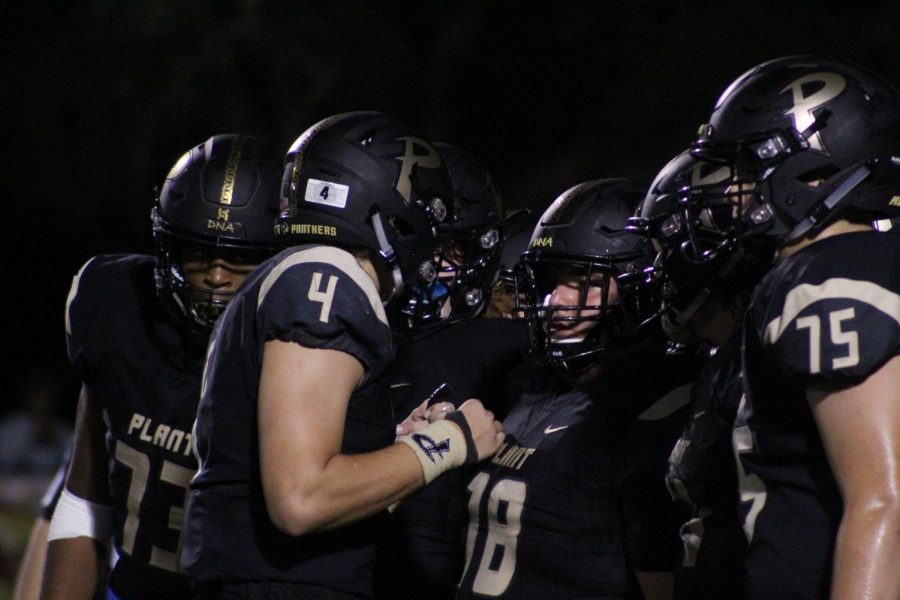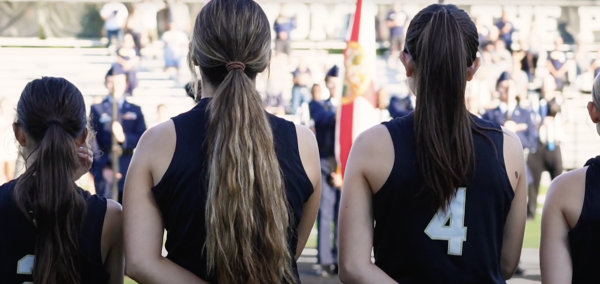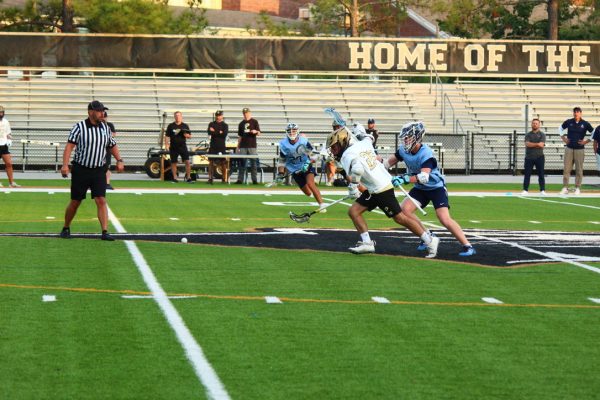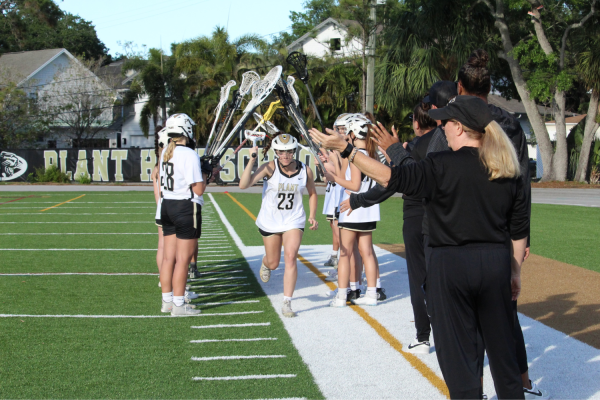Sports affect the mental health of student athletes
Relaying the play to his team, senior Tucker Gleason prepares for the next series.
The balancing of school, sports, social life and sleep for a student-athlete can be a challenging thing.
“Sports can be something that really build someone’s confidence up, or it can help tear someone’s confidence down,” football coach Robert Weiner said. “That carries over from their sporting life to their life outside of the sport.”
The pressure put on student-athletes to succeed can lead to an unhealthy mental state. This in turn can result in a change in the ability of the student to participate in the sport at a high level, but more importantly can lead to a mental health condition that affects the student’s ability to function in all aspects of life.
Mental health conditions are things like: Depression, Anxiety, Bipolar Disorder, Post-Traumatic Stress Disorder, Social Anxiety, Obsessive Compulsive Disorder, Alcohol/Substance Abuse, Eating Disorders and many more.
“I think more and more we’ve learned that there is a second side to mental health,” Weiner said. “The side of the development of the human being, the person who is actually playing that sport.”
Mental health challenges do not only affect student athletes. According to the National Alliance on Mental Illness, one in five children ages 13-18 have or will develop a serious mental illness. However, sports can be a key contributor to things like depression and anxiety.
“I think it’s important for coaches and players to be in tune with mental health issues that sports might exasperate,” Weiner said.
Mental illness in athletes can be triggered in many ways. When playing sports, the athlete runs the risk of sustaining an injury each time they step on the court or field. Injuries such as a torn ACL, broken bone or even a concussion can put athletes out of a sport weeks or months at a time.
“When your identity lies with a group of people and a certain sport and that’s what you do, and then all the sudden it’s just swiped from you without warning, it’s tremendously stressful for athletes,” girls basketball coach Carrie Mann said. “They can really struggle from it.”
The American Academy of Orthopedic Surgeons found in 2017 that high school, college, and professional athletes trained in a single sport for a comparable number of months each year. Overtraining and burnout have been linked to affective disorders such as major depressive disorder.
“Especially kids that do sports all year, they don’t have any breaks, and they end up just getting down on themselves,” sophomore Kendal Cheesman. “Training for all those months without time off to physically and mentally repair yourself is tough. You can get worn out and it can beat you up”
Intensified training due to the pressure of being rewarded with college scholarships can lead to things like anxiety and depression. According to CBSNews.com, only about two percent of high school athletes will receive scholarships to NCAA Colleges and Universities.
“You’ll see kids go to these college camps, and they’ll try to get their name out there to coaches,” junior Tucker Gleason said. “I think that process takes a lot away from the high school experience, and it’s a mental game thinking ‘I’m going to go to this camp and impress these coaches.’”
The thought of letting down family and coaches is also a factor to consider when looking for why a student athlete has or is developing a mental illness. Whether it is the time put in by a coach, or the money put in by a parent, the athlete, will burn out their interest in the sport to keep from disappointing the people who have helped them along the way.
“I feel like you make a decision in high school where you’re like ‘okay I want to play in college,’ and if you don’t get the scholarship, you look back and you might get down on yourself and wonder what you did wrong,” Cheesman said.
Athletes can develop coping mechanisms for stress with injuries, workouts, coaches and parents. This can include thought control, relaxation, mental development and help seeking.
“Definitely realize it’s just a game,” Cheesman said. “There’s other things in life; the sport is not going to go on forever. It can be the most important thing in your life, but you have to have other things that can take your mind off of it.”













